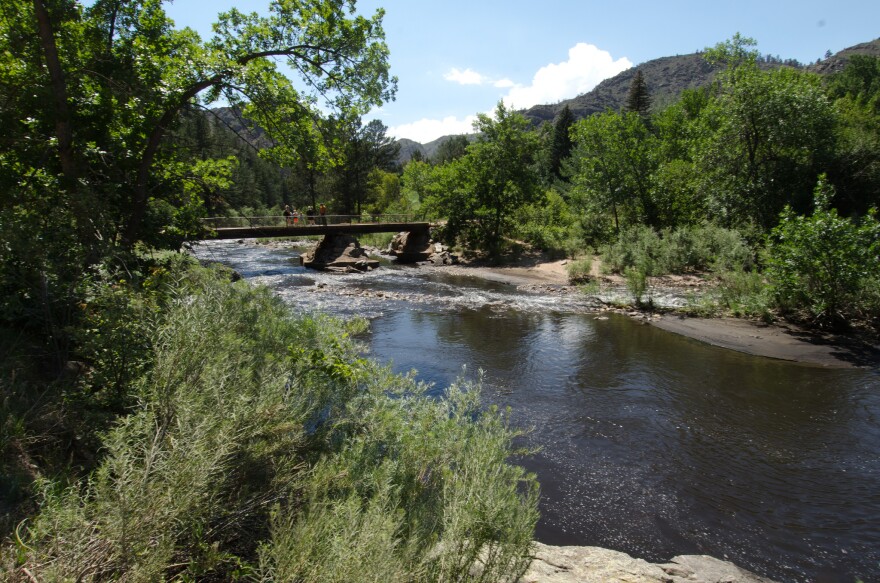There are more women entering the field of conservation, but despite growing ranks, these women often face harassment.
That's why the Center for Protected Area Management at Colorado State University is starting a new initiative to work on gender equity.
The first seminar began Monday at CSU, and brings together 17 women from across Latin America for exchange and training.
Megan Jones has been studying women in conservation leadership and the #MeToo movement in this field, and joined KUNC's Colorado Edition to discuss her research.
Interview Highlights
These interview highlights have been lightly edited for length and clarity.
Erin O'Toole: Can we start by describing what is meant as conservation fields? What kind of work are we talking about?
Megan Jones: Conservation is the field of protecting nature, so protecting species and ecosystems in Colorado and around the world that are under threat from various human-induced challenges like climate change or habitat loss.
And can you give us a sense of how many women are involved in the conservation movement?
We really don't have great numbers on that. So we know from the work of Green 2.0, that in the top 40 environmental conservation nonprofits around the U.S., women make up a majority at lower levels, and about half at senior levels, but are under-represented at the board level.
But what's really important about those numbers is that recent findings from Dr. Dorceta Taylor have shown that those numbers actually come from less than 4% of U.S. based non-profits, so we don't have a good idea about the state of the field.
It sounds like there are a lot of women working at all of the lower levels, but when it comes to leadership roles, how are women representing?
It can really vary organization to organization. In some places they are close to half of the senior leaders, but in other places you see them much less represented. And often what happens is that women might get to the almost highest levels, but they're still not in the "C-Suite" as it's called, the executive level.
Let's talk about what the problem looks like, what challenges do women in this field face that make it so difficult to advance?
Well, you mentioned harassment in the beginning, and I think that sexual harassment is a real challenge. We've seen that come up across a range of different organizations in the last few years. And it's really both that women in that case can experience sexual harassment. But also that when they experience it, they are often afraid of reporting it because they don't think that anything will be done at their organization, or that they actually will be retaliated against if something is reported, or that if anything is done it won't be enough, it will be, you need to handle that better yourself kind of a thing.
So that's one. And we also found in our interviews that women experience a host of other challenges that interact with harassment, so various forms of exclusion, either formally through not being promoted as fast as men, or informally not being invited to the meetings that men are invited to. Also difficulty with fair compensation, that women often feel that they are being paid less than men, or that they don't have the skills to negotiate for the fair salary.
And then these broader problematic trends around women feeling that they are seen as less competent, or not really belonging in the space, that people assume they're not the scientific leaders in the room, or that they don't have the skills to do this work.
So what can be done to help bring about change?
The great thing about this study that I've been working on is that we asked women leaders in conservation, what supports help you navigate challenges in your career, and they had a lot of really good ideas. One area was organizational changes. So do organizations have sexual harassment policies, and are they enforcing them? Do they have trainings on diversity, equity or inclusion, or trainings for women leadership development?
And then even more important than that were the supportive relationships that women leaders in conservation rely on in their careers, both from leaders who provide them access to opportunities and connect them to their networks and demonstrate they have confidence in women. But also from colleagues and peers who can be a place to vent, or just men who believe in gender equity and treat them fairly.
This conversation is part of KUNC's Colorado Edition for Oct. 23. Listen to the full episode here.



